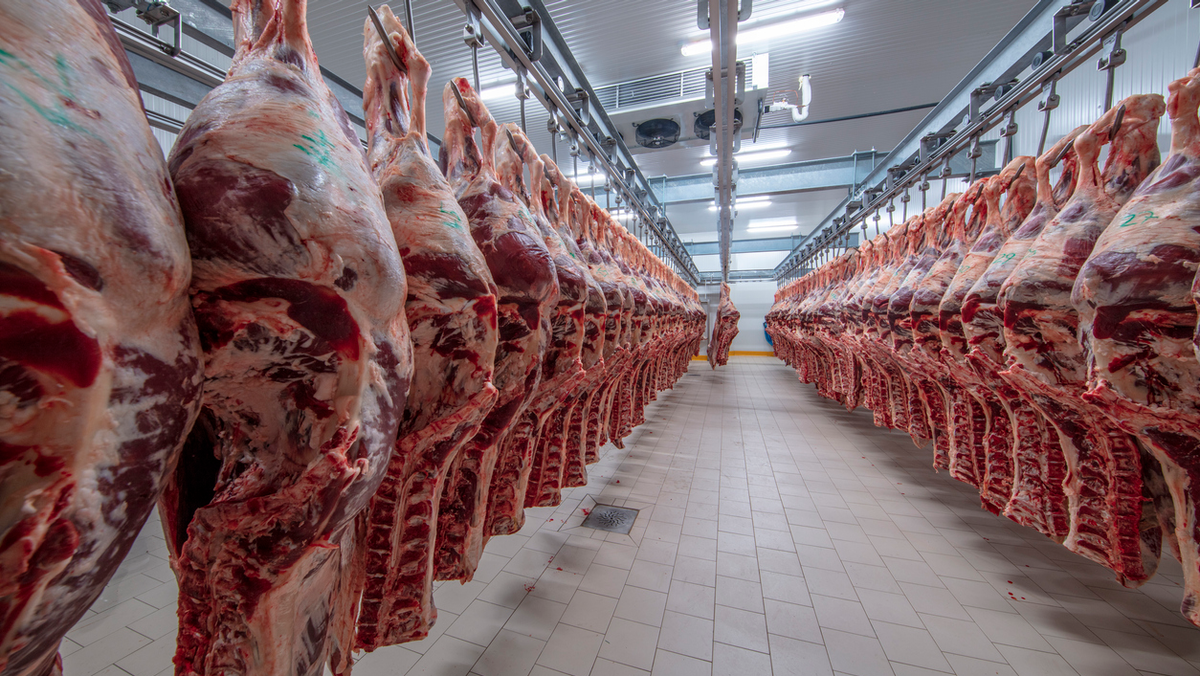JBS will have most of its plants operational after a weekend cyberattack by a notorious Russia-linked hacking group impacted its global operations.
The Sao Paulo-based JBS owns facilities in 20 countries.
The cyberattack forced shutdowns at JBS’s US beef plants, which provide almost a quarter of American supplies, its Australian slaughter operations, and its Canadian beef plant.
All other JBS meatpacking facilities in the US experienced some level of disruption, according to JBS USA Chief Executive Officer Andre Nogueira.
The company's Canadian beef facility has resumed production while those in Cactus, Texas, and Grand Island, Nebraska, were planning to resume.
JBS, the world’s biggest beef processor, has yet to report how many of its plants globally were affected.
The culprit was said to be the group that goes by the name REvil or Sodinokibi.
Just three weeks earlier, Colonial Pipeline Co., operator of the biggest US gasoline pipeline, was targeted in a ransomware attack attributed to Darkside, another group linked to Russia.
The industry is so concentrated that idling the JBS plants prevented the US government from releasing some key meat-pricing data that agricultural markets rely on daily.
The sector is dominated by JBS, Tyson Foods Inc., and Cargill Inc., which control around two-thirds of US beef production.
US Senator John Thune noted the JBS cyberattack highlights the vulnerabilities of the US food supply chain security and underscores the need to diversify the nation’s meat processing capacity.
So far, it’s unclear what the impact on meat prices will be from this latest attack.



 Asian Markets Surge as Japan Election, Fed Rate Cut Bets, and Tech Rally Lift Global Sentiment
Asian Markets Surge as Japan Election, Fed Rate Cut Bets, and Tech Rally Lift Global Sentiment  Global PC Makers Eye Chinese Memory Chip Suppliers Amid Ongoing Supply Crunch
Global PC Makers Eye Chinese Memory Chip Suppliers Amid Ongoing Supply Crunch  Bank of Japan Signals Readiness for Near-Term Rate Hike as Inflation Nears Target
Bank of Japan Signals Readiness for Near-Term Rate Hike as Inflation Nears Target  Japanese Pharmaceutical Stocks Slide as TrumpRx.gov Launch Sparks Market Concerns
Japanese Pharmaceutical Stocks Slide as TrumpRx.gov Launch Sparks Market Concerns  Gold and Silver Prices Climb in Asian Trade as Markets Eye Key U.S. Economic Data
Gold and Silver Prices Climb in Asian Trade as Markets Eye Key U.S. Economic Data  Weight-Loss Drug Ads Take Over the Super Bowl as Pharma Embraces Direct-to-Consumer Marketing
Weight-Loss Drug Ads Take Over the Super Bowl as Pharma Embraces Direct-to-Consumer Marketing  Toyota’s Surprise CEO Change Signals Strategic Shift Amid Global Auto Turmoil
Toyota’s Surprise CEO Change Signals Strategic Shift Amid Global Auto Turmoil  Kroger Set to Name Former Walmart Executive Greg Foran as Next CEO
Kroger Set to Name Former Walmart Executive Greg Foran as Next CEO  Asian Stocks Slip as Tech Rout Deepens, Japan Steadies Ahead of Election
Asian Stocks Slip as Tech Rout Deepens, Japan Steadies Ahead of Election  Washington Post Publisher Will Lewis Steps Down After Layoffs
Washington Post Publisher Will Lewis Steps Down After Layoffs  U.S. Stock Futures Slide as Tech Rout Deepens on Amazon Capex Shock
U.S. Stock Futures Slide as Tech Rout Deepens on Amazon Capex Shock  Baidu Approves $5 Billion Share Buyback and Plans First-Ever Dividend in 2026
Baidu Approves $5 Billion Share Buyback and Plans First-Ever Dividend in 2026  Samsung Electronics Shares Jump on HBM4 Mass Production Report
Samsung Electronics Shares Jump on HBM4 Mass Production Report  China Extends Gold Buying Streak as Reserves Surge Despite Volatile Prices
China Extends Gold Buying Streak as Reserves Surge Despite Volatile Prices  U.S. Stock Futures Rise as Markets Brace for Jobs and Inflation Data
U.S. Stock Futures Rise as Markets Brace for Jobs and Inflation Data  RBI Holds Repo Rate at 5.25% as India’s Growth Outlook Strengthens After U.S. Trade Deal
RBI Holds Repo Rate at 5.25% as India’s Growth Outlook Strengthens After U.S. Trade Deal  Yen Slides as Japan Election Boosts Fiscal Stimulus Expectations
Yen Slides as Japan Election Boosts Fiscal Stimulus Expectations 































